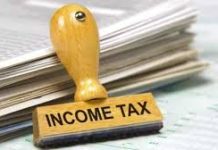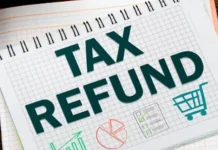Understanding tax concepts sometimes feels like solving a complex puzzle. The world of tax is full of new concepts and terms and sometimes we don’t understand them at all. In this article, we will try to make you understand the importance of early tax planning and improve your understanding of it
The new Financial Year (FY) has begun. You now need to adopt a strategy to manage your tax. In other words, it is time to reduce your tax burden and achieve your financial goals through better tax planning. Moreover, understanding tax concepts sometimes seems like solving a complex puzzle. The world of tax is full of new concepts and terms and sometimes we do not understand the words related to it at all.
In this article, we will try to improve your understanding of the importance and importance of early tax planning. Along with this, we will also try to provide information about the terms and words related to tax planning. Here we are providing you important information in some points, which will help you in making better tax decisions.
What is Financial Year and Assessment Year?
From the income tax point of view, the income you earn in a certain period (financial year) is evaluated in the subsequent financial year, which we call the assessment year. For example, if your current financial year starts on 1 April 2024 and ends on 31 March 2025, i.e. if it is the year 2024-25, then the assessment year will be 2025-26 and in this your income of the previous year will be assessed for tax purposes.
Clarity on tax planning and tax compliance
Tax planning at the end of the financial year, i.e. in January or February every year, is not only a delayed task but also stressful. In fact, if we do this at the end of the financial year, it is not tax planning but tax compliance. Tax planning actually means preparing a strategy to reduce tax liability and for this, one should start early.
Find out which tax regime is beneficial for you
Tax planning and financial planning go hand in hand. Tax planning continues throughout the year. Ideally, it should start at the beginning of the financial year. You should think about your tax status, expenses, exemptions, deductions etc. This will give you an idea about your tax liability and how you can reduce your tax liability in a legitimate manner. Salaried people can choose a tax regime that will be beneficial for them. With the right tax planning, you can reduce your tax liability to a great extent.
Be aware of tax saving options
Many taxpayers are aware of Section 80C of Income Tax, but apart from this, there are many tax saving options available, which can be availed in the old tax regime. For example, if you want to invest beyond the limit of Rs 1.5 lakh of Section 80C, then you can contribute to NPS in the form of Section 80CCD (1B). Through this you can save an additional Rs 50,000. Apart from this, there are many other options.
Be aware of changes in tax law
From the financial year 2023-24, the new income tax regime is the default tax regime for income tax assessment. This means that if the taxpayer does not choose his tax regime, then the new income tax regime will be considered as your option. However, this option can be changed later also. Apart from this, tax rules keep changing every year and taxpayers should be aware of this.






